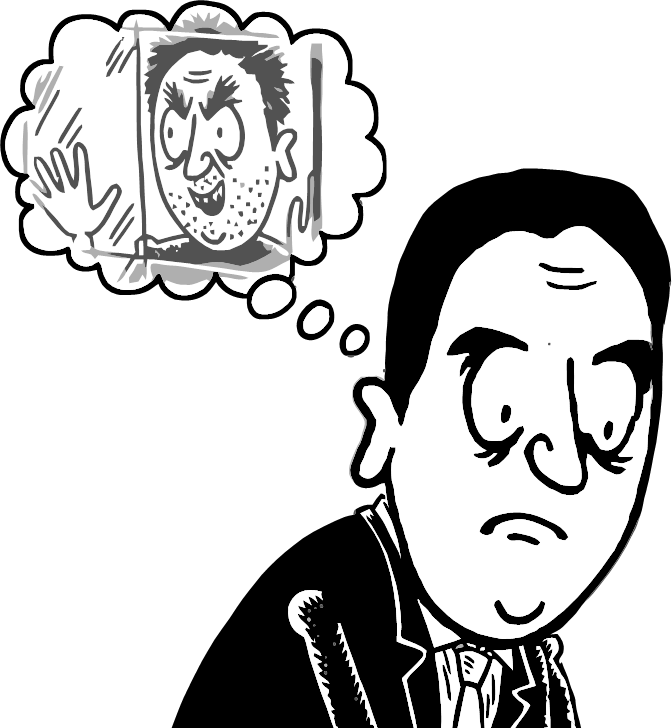Hot take: corporatism and infotainment. You control money and information, you control the world.
Corporatism=literally capitalism
It’s literally just capitalism, Marx called this alienation under capital
Capitalism
Nope education is the downfall. Teach critical thinking well and you won’t have such a malleable idiotic population that buys into either of those.
Almost none of my well educated professional-managerial class peers have developed class consciousness. They seem to be even more class clueless than blue & pink collar workers.
The question “Where did we go wrong?” being asked on 4chan in /b/ is funny to me.
Don’t vote Conservative
Where did we go wrong?
The bad guys won the Cold War.
The bad guys replaced land with happiness in the declaration of Independence.
Not even happiness, just the pursuit of.
whose land tho
I suspect the failure of viable alternatives to capitalism in the 90s resulted in the runaway scenario we see today. That doesn’t make the Soviet union good though.
That doesn’t make the Soviet union good though.
even if it was “bad” (it wasn’t just to be clear) the mere threat of its existence allowed labour unions in the West to win more concession from their bosses.
China does not have the same effect because China does not export the revolution.

100% agree. I had a much higher opinion of the soviet union before i heard how little it took to be placed in a gulag. It sounded like a toxic environment for voicing concerns at the very least. Although my sources could be biased I suppose.
Generally competition is good for the “consumer” or citizen in this case
Generally competition is good
no
Wait why not?
here is more:
Because it is unprofitable. Sooner or later competitors will realize cooperation is more profitable overall. That is why unions are strong and big companies are not really competing
and:
-This hits at one of the core flaws of libertarianism. They tend to hold as a core axiom that competitive markets and free markets are one in the same, i.e. that the “natural state” of the markets are highly competitive, and if there is a lack of competition, it must be an “unnatural state”, i.e. there is some sort of top-down interference, government policies, which restrict competition.
-Libertarians thus see cronyism as happening from the top-down, where governments interfere with the markets, create monopolies, and all for the purpose of enriching themselves. Hence, they conclude the problem is government, that you have to get rid of government and then the problems will be solved.
-This is the direct opposite view of Marxists. Marxists instead argue that markets inherently lead to a gradual increase in monopolization over time, what Marx referred to as the “laws of the concentration and centralization of capitals”, and that market economies have a natural tendency to move more and more away from competition over time.
-More than this, Marxists also see political power as not ultimately originating from the superstructure of society (the politics), but instead from the base of society (the economics). Any government policy requires enforcement, but any enforcement inherently presupposes an economic system which can produce tools of enforcement and allocate them appropriately to the enforcers. Politics is inherently derivative of economics. -The reason the political system favors the wealthy is not because of some laws implemented by some evil cabal that if they were just abolished, then capitalism would “work”. No, the reason the political system favors the wealthy is because the wealthy are the ones who control society’s wealth, and so of course the political system will favor them.
-No law you write on a piece of paper will make a billionaire like Jeff Bezos have equal political influence as a minimum wage worker barely making ends meet. Production is the most fundamental basis of human society and those who control production control society’s wealth and will inevitably have more influence. Even if you write laws saying bribery is illegal then they can just bribe those who enforce it.
-Hence, Marxists do not see cronyism as a result of top-down processes implemented by a corrupt superstructure, by some evil cabal within the government that corrupted “true capitalism” and turned it into cronyism. -Rather, Marxists see cronyism as originating from a bottom-up process, that stems from the economic base in and of itself. Markets inevitably lead over time to greater and greater monopolization, creating a larger and larger gap between the working masses and the capitalists, and even if there is a “rising tide” and workers’ wages rise as well, the profits of capital increase disproportionality faster, and capital continues to centralize rapidly, leading to an increasing social chasm between the rich and the poor.
-This is why libertarianism/conservatism has never worked in history and will never work. They can’t get rid of “big government” because the economic base, capitalism, inherently creates an enormous social divide, enormous polarization in the economy. This enormous wealth inequality naturally translates to power inequality, which then allows the capitalists to capture the state for their interests.
-Once the capitalists capture the state, there is no reason for them not to implement “big government” but for their own benefit, i.e. corporate bailouts and subsidies and such. Libertarian policies, hence, in practice, always lead to “big government”. Never in human history have they actually achieved their goals, because their goals are fundamentally impossible and self-contradictory.
-Another separate point is that these people also have a tendency to water down what “capitalism” means. Capitalism is about capital, that’s why it’s called capitalism. This refers to a specific kind of society dominated by capital, i.e. production for profit. Libertarians like water down “capitalism” to refer specifically just to trade or markets, but capitalism is not tradeism or marketism. It’s capitalism. Pre-capitalist economies have had trade and markets and so have socialist economies.
I’m not the other poster, but there’s at least 3 reasons.
-
Competition doesn’t just happen for consumer goods, it happens for every single commodity traded on the market. Labor is a commodity. Because of the immense supply of labor, and the capitalist class’ deliberate decision to maintain an unemployed section of the population which deflates wages by adding more desperate people willing to work for less. Generally, you can think of a market as a battle between 2 armies who also have internal battles. If the attacking army is better at organizing itself and doesn’t get mired in the internal conflict, while the defending army is divided and has constant mutinies, the attacking army is bound to have a better chance in the battle. The capitalist class is smaller and has a much easier time coordinating, most workers don’t have large enough unions to contend with that.
-
Competition only goes on for so long, and eventually the whole point of a competition is that someone wins. If you have several companies competing to set the price of a commodity in a market, odds are one of them has enough capital to starve out the other ones. That happens in the real world all the time. What’s worse, the more times you capture parts of the market, the easier it is to capture more. That’s one of the fundamental tendencies in capitalism, the centralization of capital under fewer and fewer hands. Of course, once this process has run its course the result is monopoly, but even if the companies step short of monopolizing the market entirely to avoid anti trust regulations they are still likely to draw agreements between themselves to keep prices at a certain level to maintain profits. Recall the armies analogy above.
-
Even if nobody won in a competition and there was some permanent state of lowering the price of goods, while this is “good” for consumers, it’s still bad for the workers producing the goods, which most consumers are. Capitalists have no problem investing more fixed costs in the process of production if it leads to larger profits in the short term, but the issue comes down to the way profit is made in the first place. In a capitalist system, a cycle of production takes place when a capitalist exchanges money for commodities, pays a wage to workers who improve the commodities through their labor, then sells the commodities for more money than they spent during the cycle. The difference in the selling price and the fixed cost (capital) plus the variable cost (wages) is profit. Since the fixed cost is paid for at the same rate everywhere, i.e. no one should be buying the same commodities for significantly different prices at least locally, the only place where the difference could come from is the wages being smaller than the value added to the commodities through labor. Therefore, profit comes as a result of using labor that the capitalist bought at a discount. That discount we call exploitation. Now consider what happens if more capital is invested: the fixed costs grow in relation to the variable costs, but profit only grows if more labor is exploited. That means that the only way to keep commodities cheaper and cheaper still, while generating more profit relative to investment, is to ramp up exploitation. Practically we see this in reality in the way the production of some goods take place once competition runs its course; factories close down and capital moves abroad to where there are fewer regulations, sweatshops replace the factories and production can keep taking place because exploitation was increased.
Thanks for the detailed comments. Is this the kind of thing you talk about at hexbear? I’d call myself a skeptic but I love the topic
-
Sure I’ll bite, competition is incredibly hard to attain so hard in fact that it doesn’t exist in the real world.
For one I’ll say that when we talk about competition should have the following elements:
No competitor has a large market share (A large marketshare would help them influence prices which they can use to drive out other competitors taking their market share) Almost no barrier to enter and exit the competition Consumers have perfect information
Now ignoring that ‘competitors’ will activly try to destroy perfect competitions to go for higher profits why do even consumers not want competition? Economies of Scale
In order to have perfect competition you need an ‘excess’ of competitors. So think 100 furniture factories when 10 could do that work, every factory needs to figure out their own logistics, sale and management, this means that the state of competition is less efficient than a state that is closer to a monopoly/duopoly/oligopoly with several larger companies, even if those companies suck.
This is also of course ignoring natural monopolies aka utilities.
I think competition — actual competition, not “5 megacorps own everything” competition — can be useful in some cases, but keep in mind that competition does not necessarily incentivize good products. With food, for example, competition incentivizes addictive, unhealthy shit. With social media, same thing. With labor, it incentivizes exploitation, because whichever company squeezes the most work out of people for the lowest pay outcompetes everyone else. You can ameliorate these shitty incentive structures by putting workers and communities in charge of production, rather than owners and shareholders who want to maximize profit at the expense of any other metric.
What would happen if capital succeeded in smashing the Republic of Soviets? There would set in an era of the blackest reaction in all the capitalist and colonial countries, the working class and the oppressed peoples would be seized by the throat, the positions of international communism would be lost.
Damn, really feels like we’ve been seized by the throat
There were no good guys in the cold war.
I wish I could just completely block anything from hexbear, no matter where I go you guys are pushing your toxic agenda.
The people that ended malnutrition among their people and brought us into space are toxic?
You hate seeing hexbear users, so you took the considered and well-thought tactic of directly replying to one to whine about them. That’ll stop you from seeing more of them, for sure!
Yes, just like glorifying oppressive states on an online forum will bring about communism!
You must be confused, Hexbear is a forum for shitposting not bringing about communism. Real world organizing is for bringing about communism. Hope this clears that up!
You should read the Jakarta Method.
The purpose of your life is to be a productive asset for people who make their living owning productive assets. They are in charge of the government and the economy and will never vote themselves out. They will kill to maintain their status as owners of productive assets because they do not want to become owned by someone else. They do spend a lot of time making sure you’re over stimulated because not only do you make the product for them you also buy the product from them. You’re a little blood bag in multiple ways and they are leeches.
They need you to vote for them, to make their actions legitimate so the whole thing doesn’t erupt in violence and get them killed. The most effective way to do that is to build a bunch of windmills at which you’ll tilt. They can’t make you hate other people for owning productive assets, so they have to come up with other reasons. And those reasons also have to work in their favor, as in make you hate their competition and enemies. You hate their enemies, who also own productive assets, but you hate them for largely abstract reasons detached from the actual reality of your exploitation. This dissonance creates malaise unless you feel like you’re discovering a deeper truth by buying into more propaganda. You get on another dopamine treadmill which ultimately leaves you unsatisfied no matter how angry you get. Because it’s never about recognizing your actual situation.
They need you to keep making product for them, because if you run out of product to make, they lose their livelihood. You also need to keep buying product. They sell you everything you need, making sure there’s as many people between it and you as possible, each extracting some profit. This causes friction which causes malaise. Once everyone has everything they need, they don’t sell as much product. This is bad so they invent need, they try to make you want stuff so you keep buying. This means they need more productive assets like yourself, this grows their empire. They come up with more abstractions for why you’re unhappy and how buying product will satisfy you. But with the accumulation you are still left unfulfilled.
This isn’t new and owning productive assets isn’t as profitable as it used to be. You need more and more to make the same amount of money, to keep the same amount of power. So the expansion and accumulation of more involves people like yourself being made miserable. They need war to go into other places and take over those productive assets. They need you to be on board for war so they have to demonize the other productive assets like yourself. They need you to fight in the war so you lose your friends and family. But to make up for that they abstract that exploitation away with fictions as well.
A society that allows a few people to collectively own all or most productive assets (ie, labor) will always result in this malaise. It will never bring you contentment. And if, by some chance, you get to own productive assets are now happy because you’re free from being owned, millions of others will take your vacancy from the working class. So you’re happy but they are not and their discontent will ultimately bring conflict, which makes you unhappy again.
Human experience is not profitable, or I should say, it is. As you’ve noticed, the amount of human experience you can afford or make time for is almost none. Your entire human experience is consumption and production. Even when you have fun you must consume product. You must pay a series of people who own the productive assets that produce your enjoyment. Reality is not helpful to the owners of productive assets. It just gets in the way.
You can’t imagine an alternative because the prospect of another promise of freedom from being owned is just too scary. You’re better to go with the devil you know.
You’re not unhappy because you’re possessed with bad spirits. You’re not unhappy because of some abstraction living across the ocean that exists to threaten your other coveted abstractions. You’re unhappy for a precise and easily explainable material reason. That reason is that you are exploited and are actively prevented from stopping it. You are manipulated into believing that exploitation is actually freedom. So in chasing freedom you either further exploit yourself or exploit others, adding to the general friction of society and life, causing misery.
Would you want a change from the current modus oprandi? If so how would you suggest it one or many achieve it?
Create a better world through revolutionary solcialism
I wonder if it has anything to do with the system we’ve built to buy and sell products, owning, trading and hoarding capital? No, that can’t be it…
The constant revamping of the production process, the uninterrupted disturbance of all social conditions, and the everlasting uncertainty and agitation of society distinguish the bourgeois era from all earlier ones. All fixed, fast-frozen relationships, with their train of ancient and venerable prejudices and opinions, are swept away. All new-formed relationships become outdated before they can solidify. All that is fixed melts into air, all that is sacred is profaned, and people are at last compelled to face with sober senses their real conditions of life, and thier relations with each other.
-Some guy, in some manifesto, in 1848
Is this supposed to be a “the world has turned into shit” take, even though it’s been like this for ages (way before the 4chan poster, or anyone alive for that matter, was born)?
Modern life as we know it is relatively recent. Maybe 150 years MAX. Sure things have always had a tinge of bad, but take things in context.
We’re in an age where our grandparents or great grandparents, people we had exposure to and spoke to, experienced the start of monumental technological advancement in a relatively short period of time. Cars, planes, phones, movies, photos. Consider how much of your life is centered around these advancements.
We live in an extremely different and short lived period of humanity, where people we end up putting in charge of important societal tasks speak as if things like the economy are laws of nature, despite existing in its current form for maybe 2-3 generations at most.
This poster is experiencing the culmination of these advancements. The alienation, the over stimulation, the speed at which life takes place. It’s starting to show itself as a bit of a dead end as the ice caps melt away.
Everything is about money, not about having an actual human experience.
Human experience is still there, everywhere. You have to make the effort to get out of your burrow and do things outside with physical people.
It’s called alienation under capital
Like we can afford burrows.
I’ve gone through a lot of crap to learn and really believe that happiness and contentment can only come from within. The outside world has a lot to offer, but it will never give you that.
Unfortunately the outside world and circumstances CAN make it pretty damn difficult or impossible.
It’s a cliche to think of a monk or philosopher saying stuff like “if you want to be happy, be happy,” but that’s a lot of how I I’ve come to see it. And obviously it’s not that simple, we are pretty damn complicated, but that’s the spirit behind it.
I get what you’re saying. There are ways to think that can help people feel happier or better on a personal, individual level. Thats more or less what some forms of therapy can do for people, and its a very good thing, again on an individual level.
But the context in that piece, and where i would put the emphasis, is that its an example of capitalist alienation and atomization. There’s no individual answer to that. It’s something that is pushed onto all of us through our relationship to capital, and to truely end that malaise, we need to work toward ending capitalism itself.
bet a month’s rent anon doesn’t exercise and their sleep is fucked. I was this doomy too, before I fixed my shit.
I work out, read, touch grass and sleep consistently. Anon still has a great point.
Nah it’s just capitalist realism hitting a mfer hard














